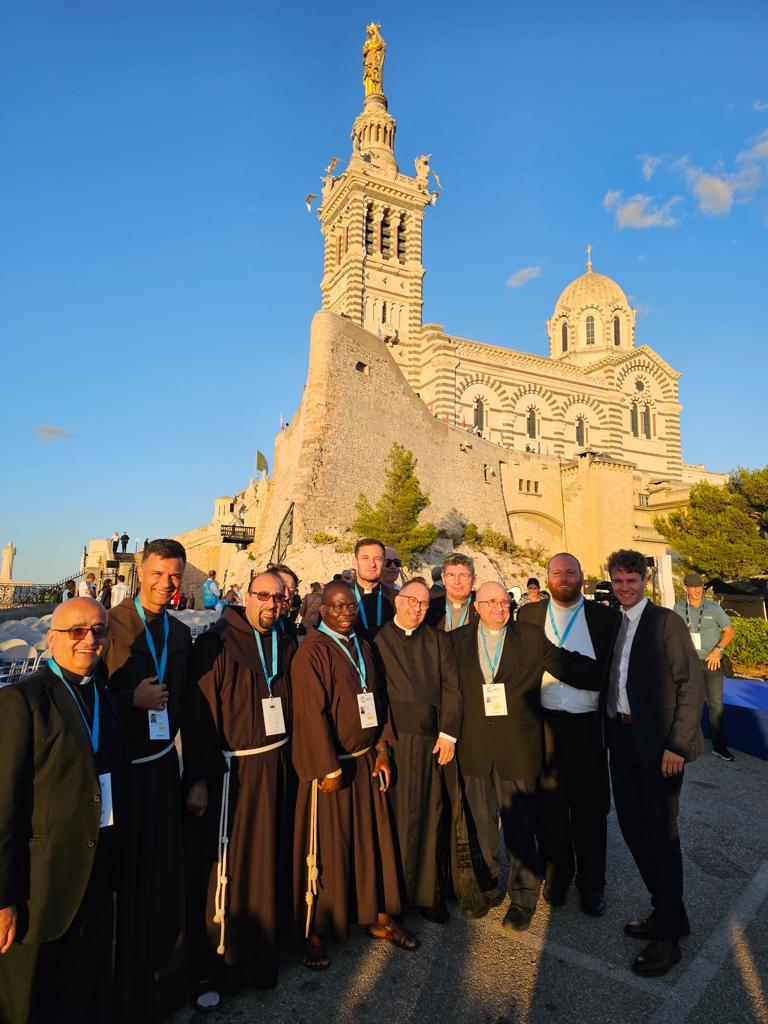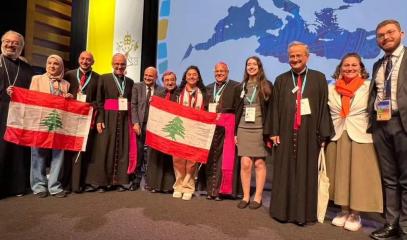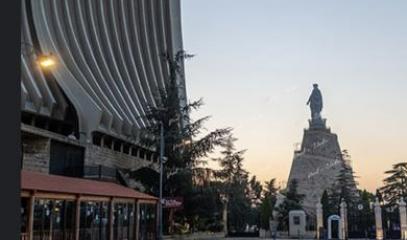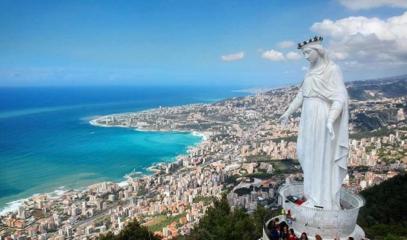Our Lady of the Mediterranean: a crown of 12 sanctuaries in the sign of fraternity
The initiative linked to the "Rencontres méditerranéennes" and involves the rectors of 12 sanctuaries of countries overlooking the Mediterranean. The places of worship, explains the rector of Harissa, also attract "many Muslim pilgrims, including from Iran". In Lebanon and in the region, "conflicting geopolitical alliances" and a "corrupt political class" weigh heavily. Bishop of Algiers: the great "fracture" is above all "economic".
Beirut (AsiaNews) - A crown made up of 12 sanctuaries scattered in the countries overlooking the Mediterranean, symbolizing the respective stars that surround the head of the "woman" in the Book of the Apocalypse, as a sign of communion and mission.
This is one of the projects launched during the assembly of the rectors of the sanctuaries of the "mare nostrum", which was held at the Basilica of Notre-Dame de la Garde as part of the "Rencontres méditerranéennes" scheduled from 17 to 24 September last Marseille with Pope Francis.
Speaking to AsiaNews is Fr. Khalil Alwan, rector of the Notre-Dame du Liban sanctuary, in Harissa. “The Virgin Mary – he explains – will be invoked with the new title of Our Lady of the Mediterranean”.
For the Lebanese priest, shrines play an essential role in the evangelization of God's people and in strengthening interreligious brotherhood. “We see many Muslim pilgrims - he observes - visiting Harissa. Particularly those coming from Iran."
Fr Alwan likes to quote Saint John Paul II, who warned against devaluing popular piety, otherwise "the faith will dry up". And citing the current pontiff, he underlines how sanctuaries are "irreplaceable places that keep popular piety alive", associating it "with the practice of the sacraments and, ideally, with catechetical training".
Message of freedom and pluralism
Returning to the “Rencontres méditerranéennes”, the archbishop of Marseille Msgr. Jean-Marc Aveline underlined how it is "more than a city, it is a message". Words that struck the faithful present, but above all touched the hearts of the Lebanese delegation by borrowing the famous formula of John Paul II "Lebanon is more than a country, it is a message of freedom and an example of pluralism for the East as for the 'West".
The representation is made up of four bishops including Msgr. Mounir Khairallah, Mgr. César Esssayan, Msgr. Paul Rouhana and Msgr. Jules Boutros, the rector of the sanctuary of Harissa Khalil Alwan and four young people: Rita Abi Hanna, Riham Sahmarani, Pascale Debbané and Elias Turk.
“We are robbing Lebanon of its exclusive right to be a message country” is an expression that elicits a bitter smile from Mgr. Mounir Khairallah, bishop of Batroun and present on behalf of the Maronite patriarch, who was on a pastoral visit to Australia in the same days.
"Sunken in an interminable economic and political crisis, without a president for eleven months, Lebanon - states the prelate - is today a shadow of itself, divided between conflicting geopolitical alliances, pushed towards the abyss by an incompetent and corrupt political class"
"[We hope] that the entire Mediterranean region will be a message of brotherhood for the world, or a mosaic of hope, as the Pope says" urged Mgr. Khairallah and the proposal for the crown formed by the 12 sanctuaries fits into this perspective. However, at the moment the reality is very different and the Mediterranean is experiencing a phase of conflicts and tragedies, with the country of cedars which "knows it better than anyone else" by hosting more than 1.5 million Syrian refugees and for over 75 years bringing the burden of the Israeli deportation of the Palestinian people.
The North-South divide
Finally, the Lebanese delegation appreciated the intervention of Msgr. Jean-Paul Vesco, archbishop of Algiers, who spoke on behalf of the bishops of North Africa: Morocco, Algeria and Tunisia, and the states of the Arab League.
In particular, the prelate underlined that the three countries are more oriented towards the north of the Mediterranean, but do not communicate with each other. This is typical of nations “of the southern hemisphere,” said the bishop, “who live in poverty and under authoritarian governments. The great fracture that crosses the Mediterranean is above all economic. Nothing can stem the flow of migrants other than the fight against poverty. As Paul VI said in his encyclical Populorum Progressio: Development is the new name for peace."
11/08/2017 20:05
22/09/2023 15:15










.png)










